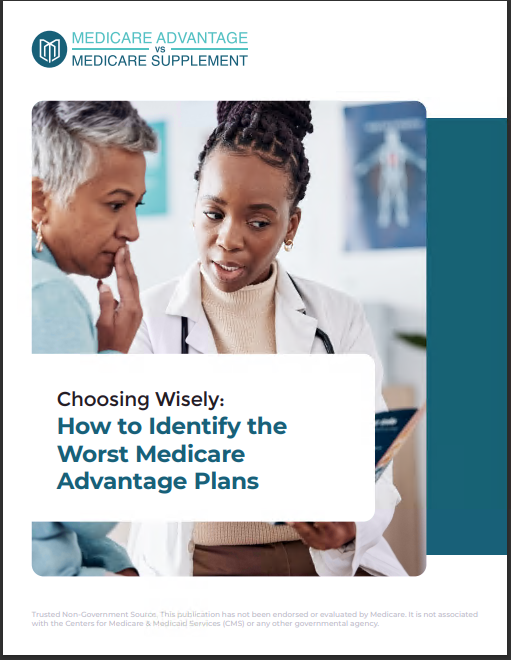Key Takeaways
- Enrolling in Medicare on time is essential to avoid costly penalties and ensure continuous healthcare coverage.
- Understanding the enrollment periods and knowing when to sign up for Medicare can save you from unnecessary stress and financial burden.
Avoid Costly Penalties: When and How to Enroll in Medicare Without the Stress
Navigating Medicare enrollment can be a complex and stressful process. Yet, failing to enroll at the right time could result in significant penalties, leading to higher healthcare costs. With a bit of knowledge and careful planning, you can avoid these pitfalls and ensure that your transition to Medicare is smooth and stress-free. This article will guide you through the critical timelines and steps for enrolling in Medicare, helping you to sidestep penalties and unnecessary complications.
Understanding Medicare: A Brief Overview
Medicare is a federal health insurance program primarily for individuals aged 65 and older, but it also covers certain younger people with disabilities and those with End-Stage Renal Disease. It is divided into different parts: Part A (hospital insurance), Part B (medical insurance), Part C (Medicare Advantage plans), and Part D (prescription drug coverage). Understanding these parts is crucial as they determine what services are covered and the costs associated with them.
Part A typically covers inpatient hospital care, skilled nursing facility care, hospice, and some home health care. Most people don’t pay a premium for Part A if they or their spouse have paid Medicare taxes for a sufficient period.
Part B covers outpatient care, preventive services, ambulance services, and durable medical equipment. Unlike Part A, Part B usually comes with a monthly premium, which is based on your income.
Part C, also known as Medicare Advantage, is an alternative to Original Medicare (Parts A and B) and is offered by private insurance companies approved by Medicare. These plans often include Part D coverage and may offer additional benefits like vision or dental care.
Part D provides prescription drug coverage and is also available through private insurers. Like Part B, Part D requires a monthly premium, and it’s important to choose a plan that covers your specific medication needs.
When Should You Enroll in Medicare?
Knowing when to enroll in Medicare is vital to avoid late enrollment penalties. There are specific periods during which you can sign up for Medicare, each with its own rules and implications.
Initial Enrollment Period (IEP)
The Initial Enrollment Period is the first opportunity you have to sign up for Medicare. It starts three months before the month you turn 65, includes your birth month, and ends three months after that month. In total, this gives you a seven-month window to enroll in Parts A and B.
For example, if you turn 65 in June, your IEP begins in March and ends in September. Enrolling during this period is crucial because if you miss it, you may face penalties when you do eventually sign up.
General Enrollment Period (GEP)
If you missed your Initial Enrollment Period, you could enroll during the General Enrollment Period, which runs from January 1 to March 31 each year. However, be aware that your coverage won’t begin until July 1 of that year. Additionally, if you enroll during the GEP, you might incur late enrollment penalties, which can increase your Medicare Part B premiums for as long as you have coverage.
Special Enrollment Period (SEP)
A Special Enrollment Period may be available to you if you didn’t sign up during your IEP because you were still working and had health coverage through your or your spouse’s employer. The SEP allows you to enroll in Medicare without facing penalties once your employment or group health coverage ends. This period typically lasts eight months, beginning either the month after your employment ends or the month after your group health coverage ends, whichever comes first.
Open Enrollment Period (OEP)
Although not directly related to your initial sign-up, the Open Enrollment Period, which runs from October 15 to December 7, allows you to make changes to your Medicare Advantage (Part C) or Medicare Part D plans. During this time, you can switch from Original Medicare to a Medicare Advantage plan, change Medicare Advantage plans, or change prescription drug plans. However, this period is not for first-time enrollees; it is meant for those already enrolled in Medicare who want to make changes for the upcoming year.
Avoiding Late Enrollment Penalties
Missing the designated enrollment periods can result in costly penalties, particularly for Medicare Part B and Part D. Here’s how you can avoid these penalties:
Medicare Part B Penalty
If you don’t sign up for Part B when you’re first eligible and don’t qualify for a Special Enrollment Period, you may have to pay a late enrollment penalty. This penalty is typically an additional 10% for each full 12-month period that you could have had Part B but didn’t sign up. This increased premium will apply as long as you have Part B, so it’s crucial to enroll on time to avoid this ongoing expense.
Medicare Part D Penalty
The Part D late enrollment penalty applies if there’s a period of 63 days or more after your Initial Enrollment Period during which you don’t have Medicare drug coverage or other creditable prescription drug coverage. The penalty is calculated by multiplying 1% of the “national base beneficiary premium” by the number of full months you were without coverage. Like the Part B penalty, this amount is added to your monthly premium and continues for as long as you have Part D.
Working Beyond Age 65? Know Your Options
If you are still working when you turn 65 and have health insurance through your employer, you may not need to enroll in Medicare right away. In this case, you can delay enrolling in Part B without penalty if your employer provides creditable coverage (typically for companies with 20 or more employees).
It’s essential to verify that your employer’s insurance is considered creditable. If it is, you can enroll in Medicare Part B during a Special Enrollment Period once your employment ends or your employer’s coverage stops, whichever comes first. If your employer’s coverage is not creditable, you’ll need to enroll in Medicare during your IEP to avoid penalties.
Steps to Enroll in Medicare Without Stress
Enrolling in Medicare doesn’t have to be overwhelming. Here’s a step-by-step guide to help you through the process:
1. Understand Your Eligibility
Before enrolling, confirm that you meet the eligibility criteria for Medicare. Generally, you’re eligible for Medicare if you’re 65 or older, under 65 with a qualifying disability, or any age with End-Stage Renal Disease. Also, make sure to check whether you qualify for premium-free Part A.
2. Gather Necessary Information
Prepare the required documents before starting your enrollment. You’ll need your birth certificate, Social Security card, and, if applicable, information about your employer’s health insurance. Having these documents ready will make the process smoother and quicker.
3. Decide Which Parts of Medicare You Need
Determine whether you need Part A, Part B, and Part D, or if you’re interested in a Medicare Advantage plan. Your healthcare needs and budget will play a significant role in this decision. If you already have employer or union coverage, review how it works with Medicare to decide whether you need additional coverage.
4. Enroll During the Correct Enrollment Period
As discussed, it’s crucial to enroll during the appropriate period to avoid penalties. If you’re approaching 65 and not working, your Initial Enrollment Period is your first and best opportunity to sign up. If you are still employed and have creditable coverage, mark your calendar to enroll during the Special Enrollment Period once your employment ends.
5. Apply Online, By Phone, or In Person
You can apply for Medicare online through the Social Security Administration’s website, by calling their office, or by visiting your local Social Security office. Online applications are convenient and can be completed in less time, but if you prefer speaking with someone, a phone or in-person application might be better for you.
6. Review Your Enrollment Confirmation
After you’ve enrolled, you will receive a confirmation notice from Medicare. Review this carefully to ensure all your information is correct, and keep this document in a safe place for future reference.
Staying Informed and Prepared
Medicare rules and regulations can change, so staying informed is crucial. Regularly review the latest information provided by Medicare and consult with licensed insurance agents if you have questions or need guidance. By keeping up with current regulations and knowing your rights and responsibilities, you can avoid surprises and ensure that your Medicare coverage meets your needs.
Planning for a Secure Future
Enrolling in Medicare is a significant step in securing your healthcare needs during retirement. By understanding the enrollment periods and taking timely action, you can avoid the stress and financial penalties that come with late enrollment. Plan ahead, stay informed, and make the choices that best suit your health and financial situation.
Contact Information:
Email: [email protected]
Phone: 2675558901










